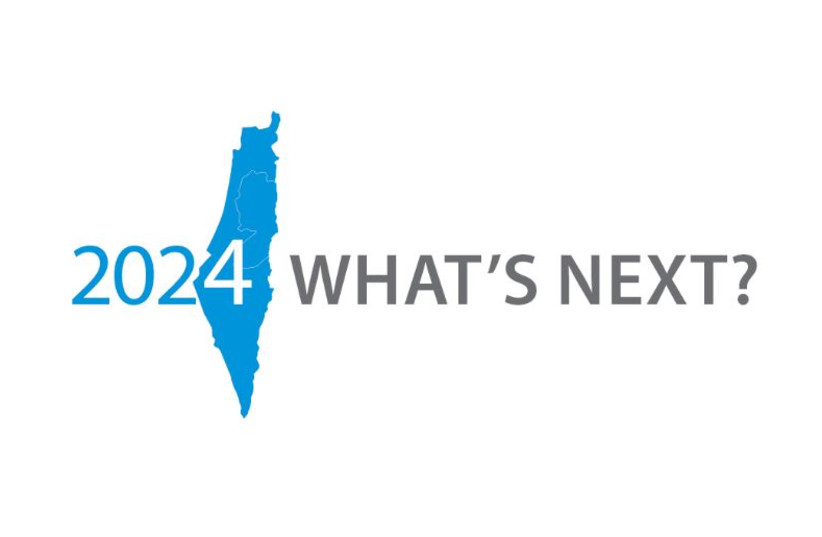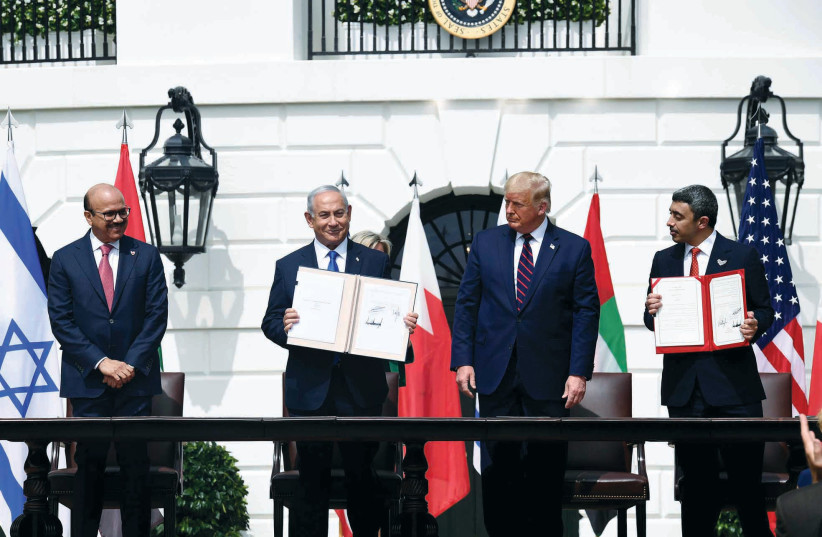
On September 14, 2023, US State Department Spokesperson Matthew Miller put out a statement about the third anniversary of the Abraham Accords. “Tomorrow marks the third anniversary of the signing of the historic Abraham Accords. Normalization between our allies in the region has been transformational for Israel, the United Arab Emirates, Bahrain, and Morocco,” the statement said. This was an important anniversary. A month later, after the Hamas attack on Israel on October 7, there were concerns about how it might impact the success of the new peace ties.
The US wanted to invest in the Accords and expand them. However, Iran wanted the opposite. It wanted to prevent Israel-Saudi Arabia normalization. The US said in September it remained steadfast in its support of a “peaceful, secure, and prosperous Middle East.” There were other things in motion before the October war as well. For instance, there was talk of a new trade route linking India to Europe via the Middle East. This would build on the I2U2 partnership of India, Israel, the UAE, and the US.
The challenges facing the Abraham Accords
However, there were also signs prior to October 7 that the Abraham Accords faced challenges. For instance, the Negev Forum, which was supposed to bring Israel together with the UAE, Bahrain, Jordan, Egypt, Morocco, and other countries, was not progressing as planned. Many of these countries had concerns about the new government that Israel swore in in December 2022.
The spring of 2023 also brought other challenges. Iranian-backed Palestinian Islamic Jihad attacks increased in the West Bank. This was designed by Iran to draw Israel into more fighting and create tensions in the region. We now know that the broader plan of Hamas was to take advantage of domestic political turmoil in Israel and launch a massive attack. The goal of Iran in the region was even wider. It wanted to reset the regional order and leverage the Hamas attack to push the US out of the region, isolate Israel, and also bring Russia and China in on the side of the Iranian “axis” of various groups, such as Hezbollah, Hamas, the Houthis, and militias in Iraq and Syria.

These are the challenges the Abraham Accords countries face. Almost all high-level visits and public meetings have been called off due to the war. Israel also replaced its foreign minister as the new year began. Any visit by an Israeli politician to most of the Abraham Accords countries would now be seen in a different light than before October 7.
This is unfortunate because Hamas extremism and the Iranian role in spreading instability in the region are exactly what the Accords were supposed to help prevent. The Accords were not meant to be against Iran, but they were supposed to bring together countries that want stability – countries that want investment in technology, not investment in extremism. Countries such as the UAE and Bahrain have made important strides in the region in embracing coexistence.
HOWEVER, THE last year has illustrated that despite the best-laid plans, there are spoilers. For instance, Sudan is now embroiled in civil war. There were higher hopes for Sudan and also its relations with Israel. One of the problems has been that there hasn’t been enough investment and focus on the Abraham Accords and expanding it.
Another effect of the October 7 attack is that it raises questions about security in the region. Israel and its new peace partners wanted to build better security frameworks. For example, Israel is now part of US Central Command. The US 5th Fleet has a base in Bahrain. There are many opportunities in terms of defense discussions and defense drills in the region. However, the war in Gaza means that Israeli forces won’t be training with their new peace partners any time soon. Last year, before the attack, that was not the case. Instead, there was a lot of push for more joint, US-backed training that brings together countries in the region. There was even talk in the US media of joint air defenses and some kind of defensive pact. All of this will now have to wait.
The UAE has played a positive role at the UN in pushing for humanitarian aid to Gaza. It has also been helping Gazans with medical aid. Other Israeli peace partners, such as Jordan, have been supporting Gaza with airdrops for a field hospital. These are welcome developments. However, there are also dark clouds that have gathered since October 7. Jordan has been deeply critical of Israel’s war against Hamas. Egypt is also angry about suggestions that Gazans might flee to Sinai. Egypt cannot accept any kind of destabilization as a result of the war.
The war is exactly what Iran wanted. It always knew that the peace and normalization deals were partly contingent on reducing violence in Gaza and the West Bank. Israel had sought to manage the conflict in this respect. Iran wanted to expand the conflict. Now Iran has encouraged the Houthis in Yemen and Hezbollah in Lebanon to carry out attacks. It has also spread chaos in Syria and Iraq.
All of this goes against the peaceful trend of the Abraham Accords. If the countries in the Gulf and elsewhere want to build on stability, they will also need to think about how to invest in peace in the new year and how to reduce the extremism that the Hamas attack caused. ■
